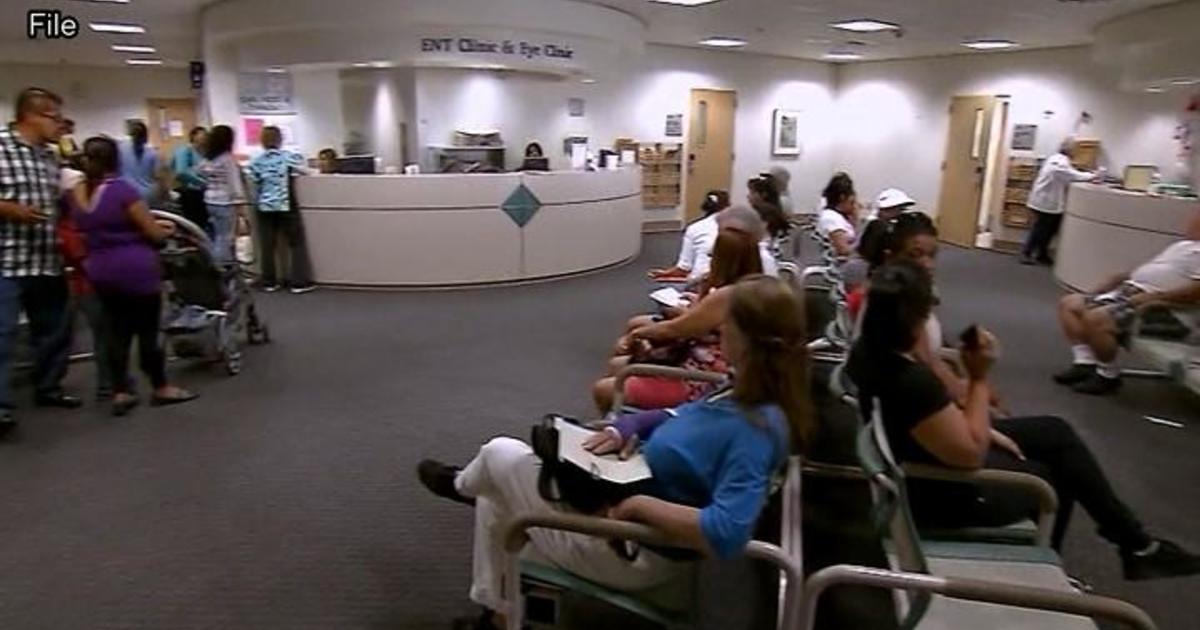Developer: Politicians Can't Keep Approving New Casinos
ATLANTIC CITY, N.J. (AP) -- Casinos are not like Starbucks stores: you really can't have one on every corner.
That's the word from David Cordish, whose company is opening a huge new casino next month in Maryland.
Yet Cordish warns that the expansion of casino gambling can't go on unchecked forever. A big problem is the attitude of politicians across the country who view casinos as free money.
"I don't know how we can control the politicians; they certainly don't understand the word `oversaturation,"' Cordish
said. "They think you can have casinos like Starbucks."
If that attitude continues, Cordish said, "it's going to implode on them."
The expansion of casino gambling has continued rapidly over the last several years, nowhere more fiercely than in the Northeast.
There is serious disagreement within the industry as to whether the market is oversaturated or whether there is room for further growth. But most agree it is tougher to do business in the Northeast casino market than it ever has been before.
The Cordish Company's Maryland Live!, opening on June 6, will have 4,750 slot machines and cost $500 million.
"Thanks, David, for bringing 4,700 new slots to this market," joked Don Marrandino, eastern division president of Caesars Entertainment, which owns casinos in Atlantic City and Pennsylvania. "That's great news for us."
Cordish said the casino market needs the stability of knowing how many operators there are going to be, particularly with the 67 percent tax Maryland imposes on its casinos.
He said the state will have four casinos with more slot machines "than anything in Las Vegas. It's an experiment that nobody knows how it's going to turn out. A contest I don't want to win is Maryland will probably be the king of the oversaturated market with the highest tax rate. It's a real problem.
"What happens when you put mega-casinos close together is they generally not only oversaturate the market, they don't work," Cordish said. In the Washington D.C. region soon, he added, "you'll have four of the largest casinos in the country operating within a short drive of one another."
But new casinos keep coming. Timothy Wilmott, president of Penn National Gaming, which has 26 casinos nationwide, said the company is interested in new markets in Massachusetts and Texas, and is opening new casinos in Ohio soon.
And Virginia McDowell, CEO of St. Louis-based Isle of Capri Casinos, which owns 15 casinos in six states, said there are
excellent new markets that don't yet have casino gambling. The company plans two more, including one in Pittsburgh.
She listed Massachusetts, Texas and Florida as prime spots for new casinos, and said even traditionally hostile states such as Georgia, the Carolinas and Kentucky are considering legalizing them.
"Frankly, some of these opportunities are the best untapped gambling markets in the United States," she said. But, McDowell said, "the industry lets its best growth opportunities die on the vine, choosing instead to fight each other."
Mitchell Etess, CEO of Mohegan Sun in Connecticut, said the state's two Indian-run casinos once had few competitors.
"It used to be just Atlantic City and Connecticut" that offered casino gambling on the East Coast. "The Northeast is going
to get a little more crowded."
And part of that will be due to Mohegan Sun, which is also seeking a casino license in Massachusetts.
At the East Coast Gaming Congress, held at the newly opened Revel casino, executives from Atlantic City casinos said offering non-gambling amenities is key to surviving the cutthroat market, particularly in the northeast.
Tony Rodio, CEO of Tropicana Entertainment Inc., said the industry, and especially Atlantic City, needs to play up the other offerings that don't involve gambling. He said the Tropicana in Atlantic City is fiercely going after mid-week meeting and convention business.
Marrandino cited the new $20 million "Do AC!" advertising campaign that Atlantic City recently launched, noting it
deliberately did not show any gambling activities. That was to stress all the other things there are to do in the resort, he said.
But Revel, which many here are hoping will turn around Atlantic City's five-year losing streak, might instead hurt the city's casino market, according to Andrew Zarnett, managing director of Deutsche Bank Securities.
"Everybody's a loser; when you add supply to a market that's not growing very much, everybody gets cannibalized," he said. "We need some of this capacity to close and go away. I would have thought that would have happened two years ago, but the properties are still here."
Zarnett said he doubts any Atlantic City casino will close until they see whether or not New Jersey will approve Internet gambling and throw the struggling properties a lifeline. He also predicted New York will approve a casino in Manhattan within five years.
Scott Butera is president of the Mashantucket Pequot Gaming Enterprise, which owns the Foxwoods Resort Casino in Connecticut, which also has been hurt by expanded competition in the northeast.
"There's a feeling you just want to click your ruby slippers together and say, `There's no place like home,' and things will go back to the way they were," Butera said. "That's never going to happen." The solution is to "create a sense of urgency. When survival is the issue, people will rally."
(Copyright 2012 by The Associated Press. All Rights Reserved.)



